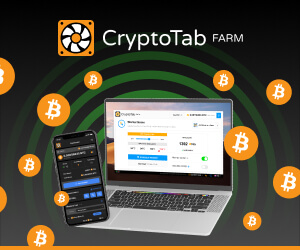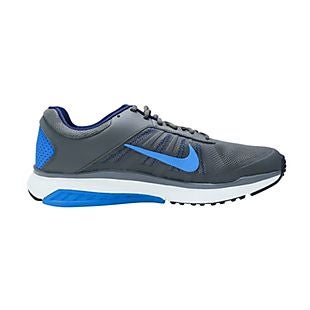Latino hip-hop pioneer DJ Disco Wiz spins a hard-knock yarn
DJ Disco Wiz, hip-hop’s first Latino DJ, left a permanent mark on the music and culture after teaming up with Grandmaster Caz in 1974.

DJ Disco Wiz and Solie, 42nd Street, 1984. Photo courtesy of Disco Wiz and powerHouse Books.
DJ Disco Wiz, hip-hop’s first Latino DJ, left a permanent mark on the music and culture after teaming up with Grandmaster Caz in 1974. As a South Bronx native, his stomping ground was 183rd Street Park—where he and his crew had to defend their sound system during the Blackout of ’77 when the city’s power went down during one of their battle routines and a riot ensued. As a minority living through the 1970s and 1980s, his backdrop was a broken social system, racial intolerance, and a fiscal crisis that hit New York City like a brass-knuckled fist. In 2009, the old-school pioneer dropped his hard-knock autobiography, It’s Just Begun: The Epic Journey of DJ Disco Wiz, Hip Hop’s First Latino DJ on powerHouse Books. He speaks with us about the explosive atmosphere that he and hip-hop came up in.
Originally published as “A Bronx Tale” in Wax Poetics Issue 41
What was it like growing up in the Bronx and seeing the birth of a new genre?
It was a one-of-a-kind experience when hip-hop got started. Between the ages of eleven and fifteen, the streets of the Bronx raised me. I was running in packs and putting in work—robberies, stickups, the whole nine. That’s who I was before I got into the music. But once I met Caz, we instantly connected. And not too long after that, hip-hop started exploding all around us. Kool Herc’s name was ringing bells. Bambaataa and Flash were doing their thing on the other side of town. No one was really making noise on our side, so it was just a natural progression that we became students of the culture. We had already been dressing the aesthetic, we were both graffiti writers, and so becoming a part of the music was just the next natural step for us.
What were the biggest hardships of the ’70s?
Back then, New York was fucking bankrupt. There were no programs, no resources. After my father died, we became a family on welfare. My mother was working two jobs at that point just to support us. I went to school, but I think I got a better education in the streets. We were definitely aware of our social environment at a young age. When my brother and I started going to Catholic school, we were less than a handful of the Latinos there. Even before my mother went on welfare, they were already calling us welfare recipients. It was a tough time for a lot of folks. Gangs were running rampant in the Bronx, and I soon became a part of that. We were all in the same boat—broken homes and a lack of anything else to be a part of.
What kind of impact did the music have on you?
Once I got involved in hip-hop, I spent less time in the street, and I started to gravitate away from those friends. But my mind-set was still pretty much the same. I still had a really quick temper. I wasn’t that overly talkative dude you’d want to kick it with, but the music taught me a lot about being a pioneer. I was the first Latino DJ, the first Hispanic dude behind the turntables, so there were a lot of biases about that from the Latino community. Hip-hop was perceived as a Black movement when it first got started, so I was perceived as a Spanish guy trying to be Black, trying to be non-Spanish.
What were most Latinos listening to then?
They were listening to disco, salsa, and Top 40. Whatever was available on WABC, the one station we had in New York. But we weren’t accepted at fucking disco joints. It’s not like I could have rolled up to Studio 54. So it was tough at first. But once hip-hop became more popular, and my crew started to do community events, hip-hop became distinctively ours. From there, we just gravitated to it even more and began to create our own mark, our own niche. I was still a very aggressive dude, so I started to channel that aggression out through the music. Caz used to get mad at me, ’cause I would break the knobs on the mixer. Sometimes, I’d even slam shit and break a needle. I was known for that. I got behind the turntables like I wanted to beat a motherfucker up. That’s why I got heavy into breakbeats.
What was it like working with Grandmaster Caz?
It was, and still is, an educational journey. He’s the most dynamic person I’ve ever met, hip-hop or otherwise. He alone was responsible for me as a DJ. He saw something in me, and he saw something in what was happening in our environment. Things I didn’t immediately see myself. He had a vision for the music, and our personalities complemented each other, because we were totally different people. He was a dude that was lyrically gifted, and I was not. Back in the ’70s, you couldn’t get more than two words out of me. Unless it was “Get the fuck out of my face!” Caz didn’t have to punch somebody he didn’t like. He could just rip a dude up by saying two or three lines.
You guys used to perform at the PAL a lot. Was that a big focus in the community at the time?
It was what it was, the Police Athletic League. People in the neighborhood would go in there and play basketball or box downstairs. They also had some community activities every so often. It became a hip-hop venue when Kool Herc started throwing events there, and then we did the same. Later on, we all brought Bambaataa over.
Were the local police supportive of that?
I don’t know that they had wind of it. And if they did, I don’t know that they cared. Honestly, in the early and mid-’70s, the police never really played a factor in our music. They never came to shut our events down. We would go to any park at any time, jack the lampposts up, set up some milk crates, rope off an area, and start playing music. It was a lot different back then. You try to do that now and you’ll get shut down in five minutes. But back then, they were too busy doing other things. The way I saw it, we had no police. They were either corrupt, or they were on demand. In ’77 alone, I don’t know how many policemen and firemen were laid off. That’s why the blackout was such a catastrophe. We had no manpower on the street. A year and a half before that, Gerald Ford told us to drop the fuck dead. New York was in its worst economic state ever. That’s how hip-hop was born. We took all those ruins and all that rubble and created something out of it.
What else fueled hip-hop as a culture in the mid-’70s?
It was one of the most dynamic times ever for music. I would listen to every kind of sound imaginable that came out of the ’60s and ’70s, whether it was rock, soul, funk, salsa, anything. That montage of music is what helped me grow as a DJ. I had that collection of sound hardwired into me, so when it came to crate digging, I knew exactly where to look. Early DJs like myself were avid record collectors. Hip-hop has that interchangeable fiber. It constantly reinvents itself. That’s why we’re still here thirty-five years later. Aside from the musical influence, it was our desire to make something unique for ourselves and live outside of the norm.
What caused you to eventually fall out of the music?
From ’78 to ’82, I was incarcerated. When I came home from doing four and a half years in prison, there was nothing out here for me. Doors were being shut in my face. I got my education while I was locked up. I took advantage of the system and went to college during that time. But there was no work for people coming out of jail. It was Reaganomics, one hundred percent. When I came home and entered a program to help former inmates transition themselves back into the working world, I was basically going through a revolving door. There were no resources out here. Once you told people you were a convicted felon, that was it. You either never heard back from them, or you were stigmatized right there on the spot. So about four months after I came home, I made a conscious decision not to bring it up again. A lot of people come home and brag about their prison time, but I just stopped talking about it. I wouldn’t even let my friends bring it up around me.
What were you incarcerated for?
Attempted murder. But just to say that alone back then put a label on me. I wasn’t happy talking about it freely, unless I could connect the dots. That’s why I needed to write my autobiography. Because of where I came from and how I was raised and the abuses that I went through as a child, there was a concrete reason behind it all. There was a cause and effect.
What else was different after you got out?
Nearly everything was different. I couldn’t have gotten farther away from hip-hop during the ’80s. It was the beginning of the golden era with the emergence of Public Enemy, King Rakim, and KRS-One. But my life was different, and I didn’t feel like I was a part of it anymore. At that point, I was a fan of the music, looking outside in.
In : #GORILLAHITTT 84.8FM LOS ANGELES
Tags: latino hip-hop pioneer dj disco wiz spins a hard-knock yarn
comments powered by Disqus




























































































